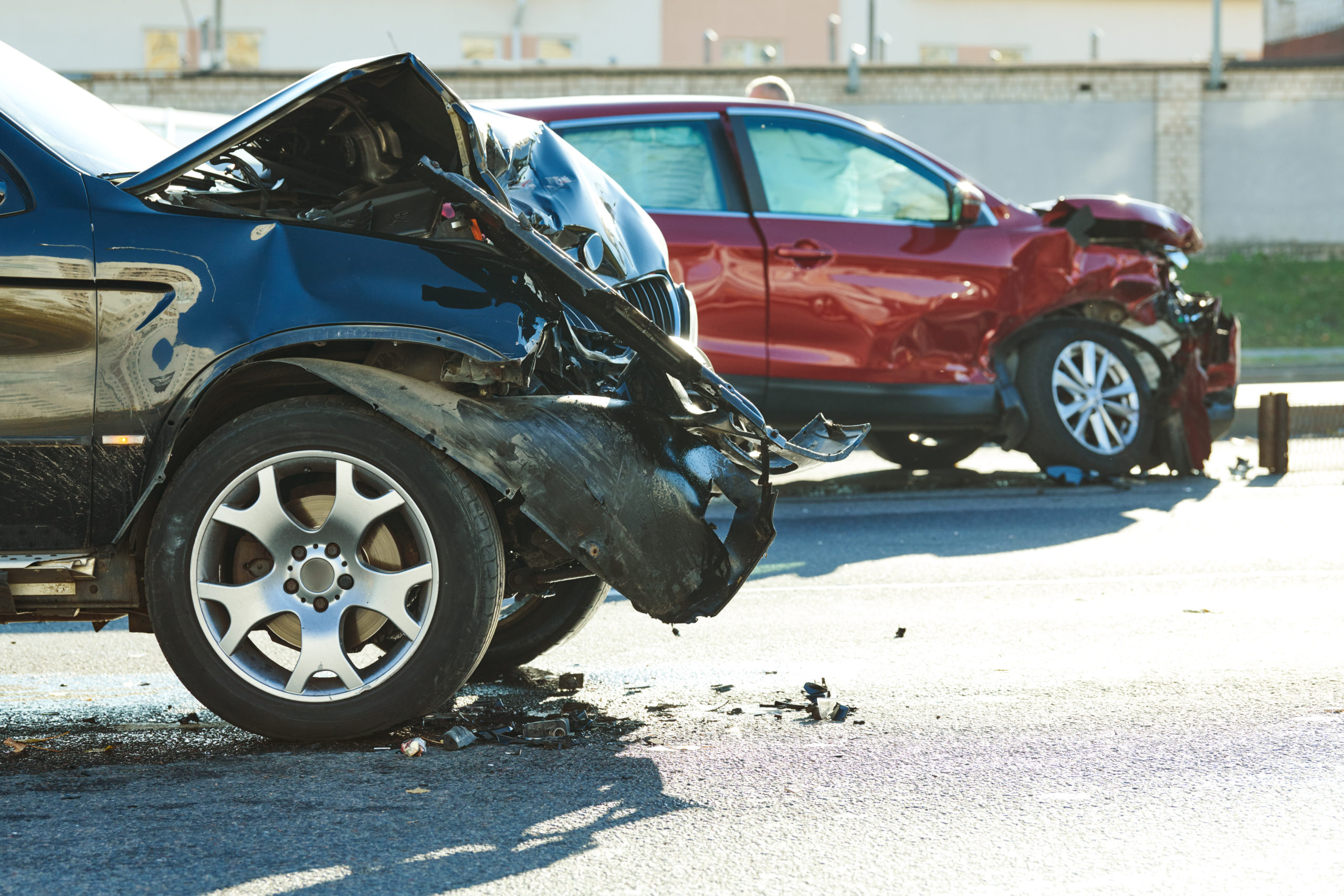Direct Compensation Property Damage Coverage for Alberta Drivers

The Government of Alberta is making a change to personal and commercial auto insurance with the aim to simplify and speed up the claims process for vehicle repairs after a collision.
As of January 1, 2022, Albertans will have mandatory Direct Compensation Property Damage (DCPD) coverage added to their auto insurance. No action is needed on your part as this coverage will be automatically added to your policy in the new year.
We’ll review what this means in more detail below. But, in short, it means your insurance company will cover repairs to your vehicle if you are not at fault or partially at fault in an accident.
How Direct Compensation Property Damage Works
If you’re involved in a collision, you will contact your auto insurance company and open a claim.
Through DCPD, your own insurer will cover repair costs when you’re involved in an accident where another driver is fully or partially at fault. Here are the three possible scenarios:
If you’re not at fault for the collision: Your DCPD coverage will cover all repairs to your vehicle.
If you’re partially at fault: Your DCPD coverage will cover a percentage of the repairs to your vehicle.
If you’re at fault: You don’t have coverage under DCPD – you’ll need collision or all-perils protection to have repairs for your vehicle covered.
The fault is determined by the claims adjuster assigned to you.
DCPD is Added to All Auto Insurance Policies in Alberta
On January 1, 2022, DCPD coverage will be added to all auto insurance policies in Alberta, including:
ATVs
Commercial Fleets
Commercial Vehicles
Motorcycles
Motorhomes
Personal Vehicles
Essentially, if you have a vehicle, it will now have this coverage on your insurance policy.
Frequently Asked Questions About DCPD in Alberta
Will Direct Compensation Property Damage cover repairs or replacements if I’m at fault for an accident?
DCPD will not cover you if you are fully at fault for a vehicle accident. That’s why we recommend you purchase collision or all-perils protection (which are optional) to ensure you’re covered in the event you are deemed at fault for an accident. Without this coverage, you’ll be responsible for paying for the repairs to your vehicle.
If you’re considered to be partially at fault, DCPD will cover a partial amount of the repair costs to your damaged vehicle. For example, if the claims adjuster determines you’re 25 per cent at fault for the accident, your DCPD coverage will cover 75 per cent of the damage. You’ll be on the hook for the remaining amount unless you have collision or all-perils coverage.
What are the benefits of Direct Compensation Property Damage?
The expected benefits of DCPD in Alberta are:
You do not have to deal with a stranger’s insurance company to get your vehicle repaired or replaced. Instead, your own insurer will provide you with direct compensation.
The claims process should be much easier and faster.
Long-term costs should be lowered and the claims system more efficient.
How will Direct Compensation Property Damage affect my auto insurance coverage?
DCPD will not change your overall auto insurance coverage; it just changes who pays for vehicle damage repairs sustained in an accident.
Again, under DCPD, your own insurer will directly compensate you when your vehicle is damaged in a collision if you’re not at fault or partially at fault.
What is the deductible for Direct Compensation Property Damage?
A deductible is the amount you pay when you have a claim before your insurance covers the damage.
DCPD will be automatically included on your auto policy with a $0 deductible. You may have the option to increase your DCPD deductible to lower your auto insurance premiums. Please speak to your broker if you’d like to discuss this option.
Will my auto insurance premium increase because of Direct Compensation Property Damage?
You may see a change in your insurance rate.
If you drive a vehicle that is less expensive to repair or replace, you’ll pay less for auto insurance compared to drivers who own more expensive vehicles.
The Insurance Bureau of Canada estimates that:
42 per cent of Alberta drivers will see a decrease in their rates.
15 per cent of Alberta drives will see no change in their rates.
34 per cent of Alberta drivers will see an increase in their rates.
Will Direct Compensation Property Damage cover costs if I’m injured in an accident?
Injuries stemming from a vehicle collision will continue to be covered by third-party liability insurance, which is one of the mandatory auto coverages in Alberta.
DCPD only applies to physical damage to your vehicle and its contents caused by a collision.
Am I covered if the at-fault driver doesn’t have insurance?
Unfortunately, if the other driver isn’t insured there is no coverage. To protect against this, we recommend having collision or all-perils coverage.
Otherwise, you’ll need to use the Motor Vehicle Accident Claims Program (MVAC) in Alberta.
My auto insurance renews later in 2022. When will Direct Compensation Property Damage coverage be added to my policy?
All Albertans will have DCPD coverage automatically added to their auto insurance policies on January 1, 2022. Your renewal date does not impact this.
DCPD coverage will be mandatory on all personal vehicles, recreational vehicles such as motorhomes, motorcycles, ATVs, and commercial vehicles and fleets.
Why is Alberta moving to a Direct Compensation Property Damage system?
The intended outcome of moving to a DCPD model is to:
improve the claims process for Alberta drivers;
reduce claim costs in the long run; and,
stabilize insurance premiums by creating a fairer pricing system.
The Government of Alberta is simply following other jurisdictions such as Ontario, New Brunswick, Nova Scotia, Prince Edward Island and Quebec, which already have a DCPD system in place. British Columbia, Saskatchewan and Manitoba also have a similar model.
Please contact your broker if you have further questions about Direct Compensation Property Damage coverage in Alberta.







